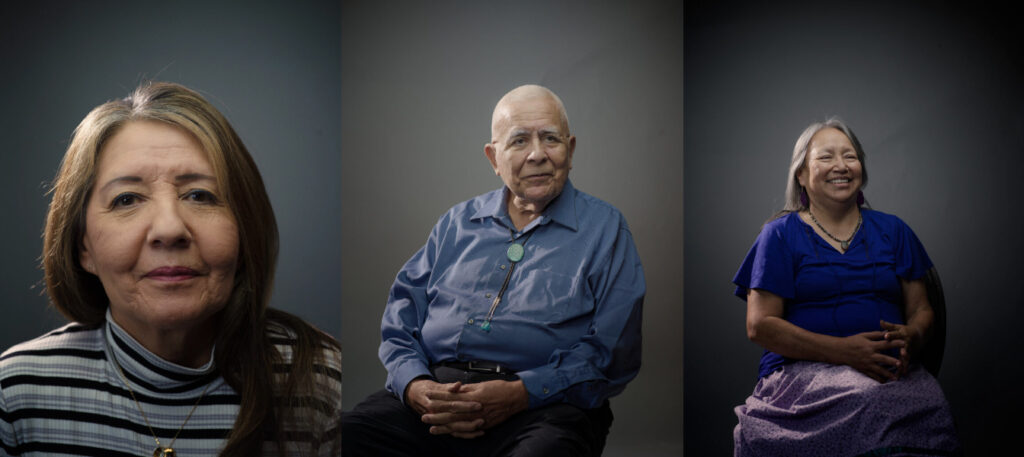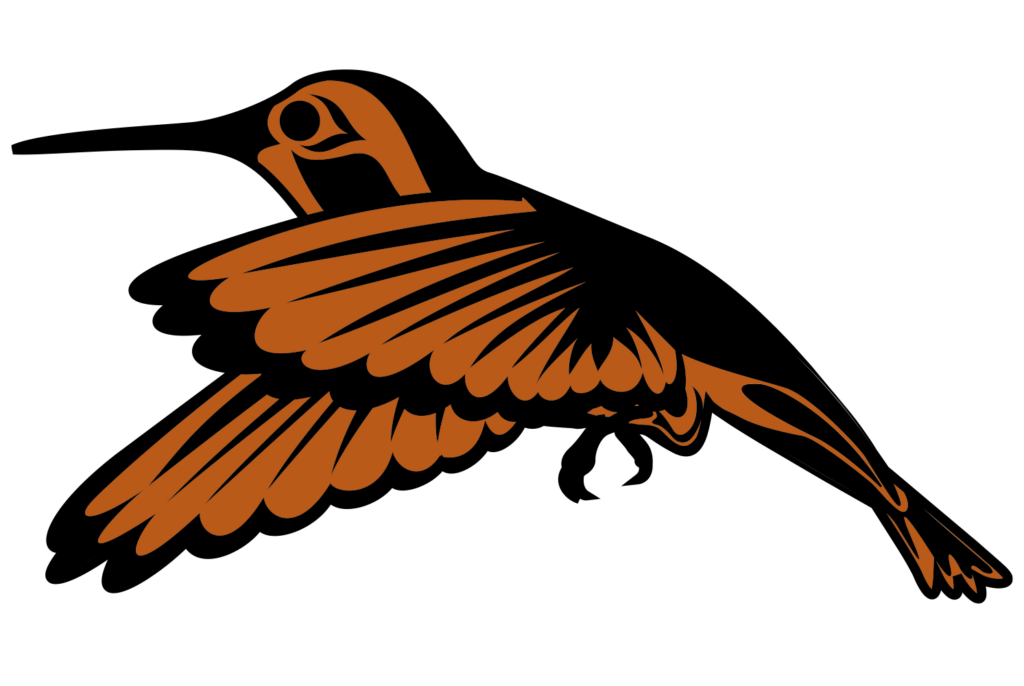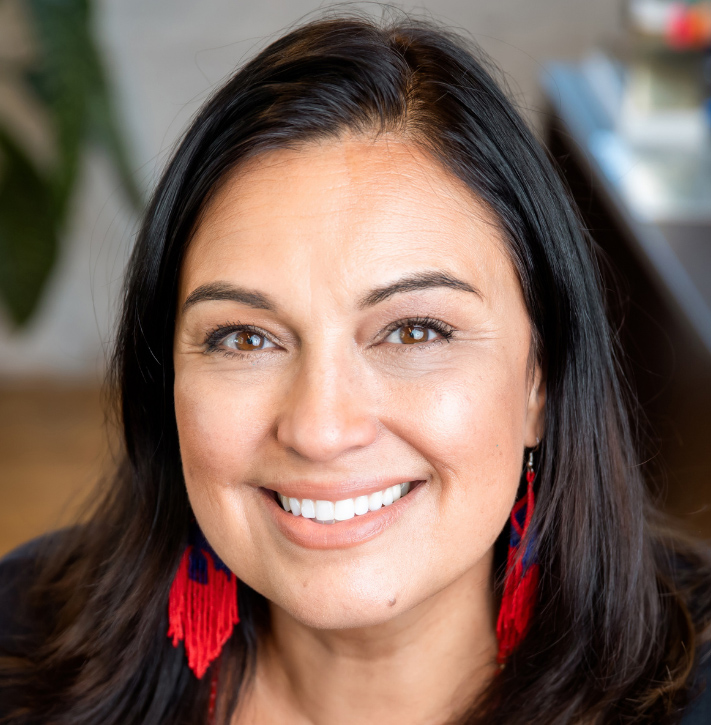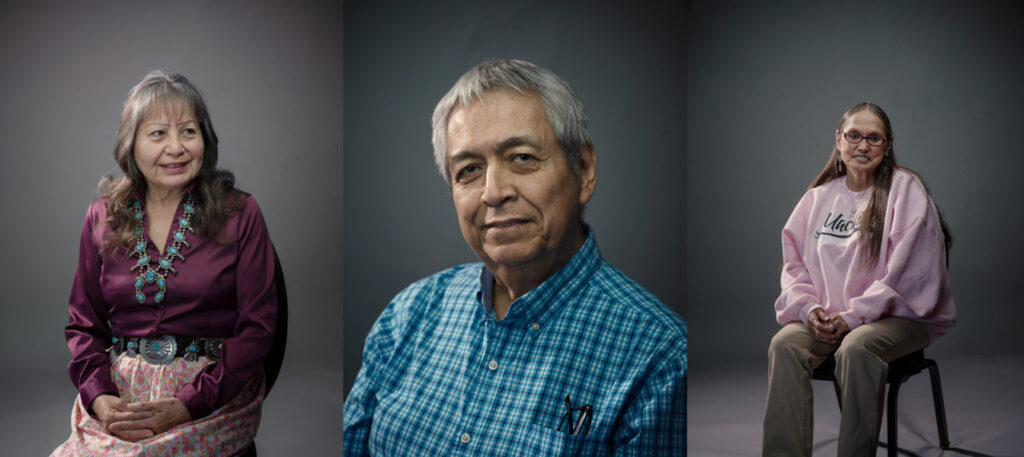NABS accepted a grant from the Department of the Interior (DOI) to conduct video interviews with Indian boarding school survivors across the United States to create a permanent oral history collection. The unprecedented effort is part of the DOI’s Federal Indian Boarding School Initiative.

NABS has built trust within the American Indian and Alaska Native community with our experience in collecting survivors’ stories in a healing-informed way. Since our inception, we have demonstrated exceptional care and respect in working with survivors in healing spaces, finding the sharing of one’s lived experience to be of critical importance in their journeys. The courage of Indian boarding school survivors has inspired others to come forward in recent years, and many continue to express their desire to share their stories, often for the first time.
To hear stories of strength and resiliency from survivors and descendants, we invite you to visit our Healing Voices and Voices From Pezihutaziziz Oyate: Boarding School Histories resources.
We look forward to continuing our work with survivors and ensuring they feel empowered and respected throughout the process of sharing their stories. Most importantly, we will ensure that they receive the love and care necessary throughout the engagement with our oral history project.
If you would like to be contacted about how to share your Indian boarding school experience, click the “Interview Sign-Up” button below. If you would like to receive updates about this historic oral history project, click the “Receive Future Updates” button below.



FAQ
The interview process will include the following:
- A 30-60 minute phone call in the weeks before your interview. This phone call will be with your dedicated NABS Oral Historian, where we will go over the project in more detail, make sure you feel comfortable doing a video interview, review some of the subjects for the video interview, and answer any questions you may have.
- An in-person video interview up to 90 minutes during the oral history project site visit with your dedicated NABS Oral Historian, during which we will ask you to share your experiences openly. We will ask you questions about your time before, during and after boarding school. You are welcome and encouraged to bring a support person with you at this time.
- After the interview, we invite you to stay and visit with us, enjoy snacks and join us at our craft stations.
- An opening and closing ceremony on the Monday and Friday, respectively, during the week of the oral history project site visit. All are welcome to attend, regardless of being interviewed or not.
You can learn more about the Department of the Interior’s effort here.
Dates and locations are still being determined, but interviews may take place at Tribal and urban Indian centers. To stay up to date on information about locations, sign up here.
A qualified team of oral historians will conduct all oral history interviews, from start to completion, including but not limited to outreach, interviews, follow up with interviewees, and preparing final interview materials, along with support from other dedicated and knowledgeable staff including trauma-informed mental health providers.
Survivors can sign up here.
NABS approaches all its work with survivors with a healing-informed approach. Survivors will be contacted prior to their interviews to ensure they know what to expect, while also allowing NABS to prepare and make their experience as comfortable as possible. All survivors will also have the opportunity to choose how their interview will be shared beyond the Department of the Interior. Survivors will have access to on-site support and resources, such as traditional medicine and healers, trauma-informed mental health providers, and counselors. Survivors will also have access to private rooms for their interview and healing needs. Each survivor will be contacted following their interviews to ensure they have continued support and access to resources they might need.
Expanding upon NABS's ongoing efforts, we are committed to maintaining our collaboration with survivors and communities to gather stories informed by healing principles and Indigenous knowledge. Partnering with Tribes, Indigenous organizations, and community leaders, we will ensure proper protocols and traditional practices are followed and respected.
In The News
Oral History Project preserving voices of Native boarding school survivors by the Verified News Network
Boarding school system survivor interviews underway in Anchorage as part of permanent oral history project by Alaska’s News Source
The missing chapter: Alaska Native boarding schools and historical trauma by KNBA
Truth, justice, and healing are the mission of NABS’ Oral History Project by KX News